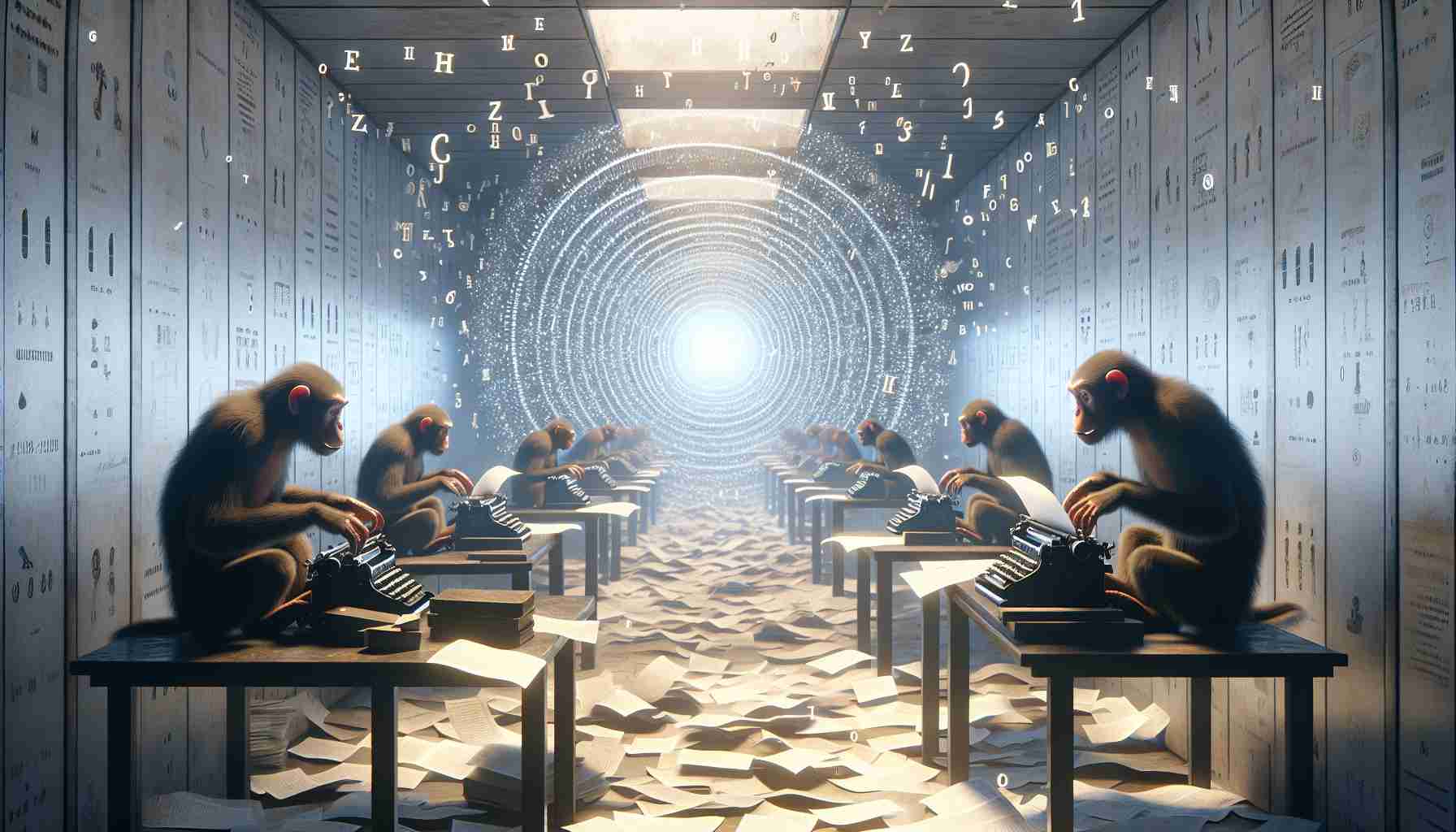The fascinating yet implausible “Infinite Monkey Theorem” suggests that given limitless time, monkeys randomly typing on keyboards could eventually produce the complete works of Shakespeare. Yet recent scientific exploration has unveiled the remarkable difficulties this theory faces in our finite universe.
The theorem relies on an infinite amount of time, suggesting that with no end, even randomness can achieve order. However, human understanding of infinity is constrained by both the lifespan of the universe and tangible limits in time and resources. A research team, led by Stephen Woodcock at the University of Technology Sydney, focused on these constraints, highlighting that these factors render the theorem highly improbable.
In their study, these researchers replaced the theoretical monkeys with chimpanzees, the closest relatives to humans. They considered the average lifespan of a chimpanzee to be 30 years, with the universe’s lifespan defined as finite. Calculating the typing probability, the study revealed that a single chimpanzee has merely a 5% chance of typing “Bananas” within its lifetime. Even with 200,000 chimpanzees typing simultaneously across the globe, the chance of replicating Shakespeare’s stories remains an elusive dream.
Despite increasing the number of chimpanzees or enhancing their typing speed, the odds of producing coherent literature are nearly impossible, according to the researchers. Their findings suggest that the theorem, when applied to a finite universe, might be misleading. This groundbreaking study, published in Franklin Open, opens a portal to discuss the paradox of limiting infinity and raises questions on the implications of infinite time and possibilities.
Is the Infinite Monkey Theorem Just a Thought Experiment? Exploring Implications for AI and Beyond
The “Infinite Monkey Theorem” isn’t just an entertaining concept but a probe into the fascinating realms of probability and infinity. While the theorem’s premise—that given infinite time, monkeys could type the complete works of Shakespeare—sounds whimsical, recent scholarly efforts cast light on its complexities and question its implications in fields like artificial intelligence and mathematics.
Unveiling the Implications for AI and Machine Learning
This theorem explores the notion of sheer randomness leading to order, which parallels certain aspects of machine learning and artificial intelligence. In AI, sometimes algorithms sift through randomness to identify patterns or generate coherent data. However, the theorem’s dependence on infinity as a resource highlights practical limitations in computing power and timeframe. This gap has implications for how we understand AI’s capability to eventually generate complex human-like outputs autonomously. Can machines “learn” purely through randomness? Or must structure and guidance always shape their evolution?
Pros and Cons of Random Creativity
An interesting facet of this topic is its clash with human creativity. On the one hand, it champions the incredible potential of infinite possibilities, suggesting that something as unstructured as random typing can create masterpieces. This notion encourages thinking beyond conventional limitations, promoting innovation. On the downside, this perspective could undervalue the intention and expertise behind human creativity, reducing it to mere chance.
Intriguing Questions and Controversies
If infinity cannot explain the randomness-to-order transition, where does that leave scientific inquiry? Could the theorem’s hypothesis hint at untapped dynamics in quantum mechanics or multiverse theories where infinite variations might exist? Moreover, how does algorithmic randomness differ, if at all, from what the theorem suggests? These questions leave room for debate and further exploration in philosophical, scientific, and technological domains.
Impacts on Mathematical Philosophy
The theorem scratches at the philosophies underpinning mathematical thought. The contemplation of infinity brings to the surface ideas about the universe’s nature, echoing beyond mere probability and touching the metaphysical. This resonates with academic debates on whether mathematics is discovered or invented—a question that continues to intrigue scholars.
Interesting Links to Explore Further:
– MIT Technology Review
– Nature
In reflecting on these considerations, the Infinite Monkey Theorem isn’t merely a quirky mathematical thought experiment. It underlines fundamental insights into the intersections of probability, human creativity, and technological innovation, highlighting both the improbable and the unpredictable pathways of future inquiry and exploration.







